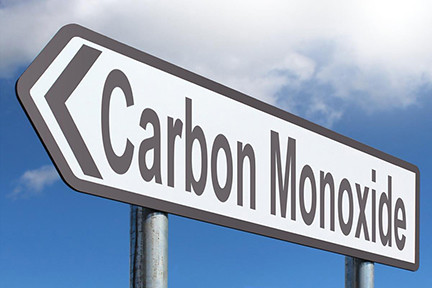Our personal injury attorneys are often asked: “What is the law on carbon monoxide in California?”
There are many industrial regulations, but two laws apply the most to persons who are injured or who have had a loved one suffer a wrongful death from carbon monoxide poisoning. These laws are the California Carbon Monoxide Poison Prevention Act, Proposition 65, and the Safe Drinking Water and Toxic Enforcement Act of 1986.
Learn more about our Sacramento Personal Injury Attorney Services.
What is Carbon Monoxide?
 Carbon Monoxide, sometimes known by its chemical abbreviation (CO), is a gas comprised of one part carbon and one part oxide. When we breathe in Carbon Monoxide, our bodies are deprived of oxygen in our blood cells. Without this oxygen, the glucose in our body cannot be converted into energy.
Carbon Monoxide, sometimes known by its chemical abbreviation (CO), is a gas comprised of one part carbon and one part oxide. When we breathe in Carbon Monoxide, our bodies are deprived of oxygen in our blood cells. Without this oxygen, the glucose in our body cannot be converted into energy.
Carbon Monoxide is also known as the “Invisible Killer” because it is a colorless, odorless, poisonous gas. Every year, more than 400 wrongful deaths occur in the United States from non-fire-related Carbon Monoxide poisoning. The most common causes of wrongful death from Carbon Monoxide poisoning are improperly ventilated generators, water heaters, stoves, and fireplaces.
What Are The Typical Symptoms Of Carbon Monoxide Poisoning?
Many people unfortunately suffer a wrongful death from Carbon Monoxide poisoning. For those fortunate enough to survive, the most common symptoms are headaches, dizziness, weakness, upset stomach, vomiting, chest pain, and confusion. Many symptoms can feel like and be misdiagnosed as the flu.
Carbon Monoxide poisoning can be incredibly destructive to pregnant women. Some of the saddest circumstances our personal injury attorneys witness are when reduced levels of oxygen in the bloodstream during pregnancy affect the development of a baby’s brain.
California Carbon Monoxide Poisoning Prevention Act
California’s primary law protecting victims from carbon monoxide poisoning is the 2011 California Carbon Monoxide Poisoning Prevention Act. Under California law, all family residences (whether owner- or tenant-occupied) with a non-electric heater, non-electric appliance, or fireplace must have a carbon monoxide detector installed. In addition to requiring all family residences to have a detector installed, the law also requires landlords to maintain those detectors.
If you or someone has suffered from carbon monoxide poisoning in California while occupying a residence as a tenant, our personal injury and wrongful death attorneys would be glad to discuss with you your possible rights and claims.
California Proposition 65, the Safe Drinking Water and Toxic Enforcement Act of 1986
In addition to residences, California Proposition 65 requires businesses to notify consumers when they may be exposed to hazardous chemicals on the premises. It outlaws explicitly telling such chemicals “into water or onto or into land where such chemical passes or probably will pass into any source of drinking water.”
Because of its propensity to cause congenital disabilities, personal injury, and even wrongful death, Carbon Monoxide is included on the list of hazardous chemicals that have to be disclosed. This “List Of Chemicals Known to Cause Cancer Or Reproductive Toxicity” is updated at least once a year.
If you have been hospitalized, have a child with congenital disabilities, or have a loved one who suffered wrongful death as the result of carbon monoxide poisoning, our experienced personal injury attorneys would be happy to offer a free consultation to determine what rights you may have.
